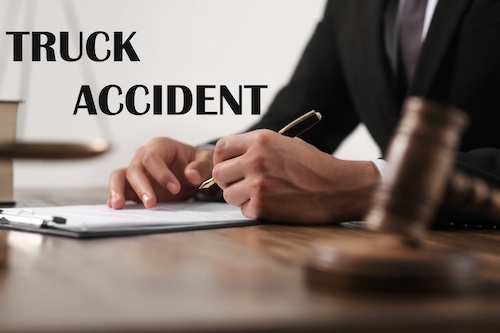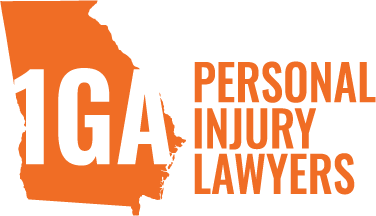How to Handle a Trucking Company Claim After a Georgia Truck Accident
Truck accidents often cause serious injuries, high medical bills, and lost wages. When a commercial truck is involved, the legal process becomes more difficult. Trucking companies move fast to protect themselves. Their insurance providers often try to limit payouts or deny fault. If you are a truck accident victim in Georgia, knowing your rights is the first step.
In this blog, you will learn the key steps to take after a truck accident, how to handle a trucking company claim, and why working with an experienced Atlanta truck accident attorney at 1Georgia Injury Lawyers can help you protect your rights and secure full compensation.
Why Trucking Company Claims Are More Complex Than Car Accidents
Truck accident claims involve more parties, more regulations, and more aggressive defense strategies than a typical car accident claim.
More Parties Are Involved
A trucking company claim often includes several defendants. These may include the truck driver, the trucking company, the vehicle owner, the cargo loader, and the maintenance provider. Each party may hold some level of responsibility. This makes determining liability more difficult. It also increases the chances of each party trying to shift blame.
Commercial Trucks Follow Federal and State Rules
Trucking companies must follow both Georgia law and federal FMCSA regulations. These include rules about driver rest periods, drug testing, and vehicle maintenance. Violating these rules can lead to serious crashes. Proving these violations can strengthen a truck accident claim. Car accident claims usually do not involve this layer of regulation.
Trucking Companies Have More Resources
Unlike individuals in car accidents, trucking companies often have teams of legal and insurance experts. These companies work fast to defend themselves. They may try to pressure truck accident victims into quick settlements. They may also destroy or hide critical evidence like driver logs and maintenance records.
Evidence in Trucking Cases Is More Technical
Truck accident lawyers must examine black box data, driver logs, and inspection reports. These details help show fault and prove gross negligence or improper loading. Gathering and understanding this technical evidence takes experience. It is rarely needed in standard car accidents.
Insurance Policies Are Larger and More Contested
Trucking companies carry high-value liability insurance. This gives victims a better chance to recover full compensation for medical bills, lost wages, and non-economic damages. However, insurance companies fight harder to avoid paying large settlements. This makes the claims process longer and more contested.
Injuries Are Often More Severe
Commercial trucks are heavier and cause more damage. Truck accident victims often suffer severe injuries or permanent disabilities. These cases require expert medical evidence and a strong demand letter to seek maximum compensation. Car accidents usually involve less serious harm.
Immediate Actions After the Accident
Taking the right steps after a truck accident helps protect your health, your claim, and your right to seek compensation from the trucking company.
Call 911 and Get Medical Help
Call 911 immediately after the crash. Ask for police and medical services. If you are injured, do not delay treatment. A medical report connects your injuries to the accident. It also supports your personal injury claim. Even if injuries seem minor, get checked. Some conditions do not show symptoms right away.
Secure the Accident Scene
If you can move safely, document the accident scene. Take clear photos of all vehicles, skid marks, road conditions, and any damage. Record details like time, weather, and traffic. This evidence helps support your trucking company claim and shows how the crash happened.
Get a Police Report
Ask responding officers for a copy of the police report. This report includes key facts, witness names, and the officer’s opinion on fault. Under Georgia law, drivers must report crashes involving injury or death (O.C.G.A. § 40-6-273). The report becomes essential evidence in your truck accident claim.
Collect Witness Statements
If there are witnesses, ask for their names and contact information. Their statements can help prove fault. Witnesses can confirm details such as speeding, distracted driving, or improper loading. These facts support your claim and help hold the at fault party liable.
Avoid Speaking with the Trucking Company
Do not give recorded statements to the trucking company or their insurance provider. Anything you say can be used to shift blame or lower your settlement. Tell them to contact your truck accident attorney. A lawyer will protect your rights and manage all communication.
Preserve Medical and Expense Records
Keep all records related to medical treatment, including emergency care, follow-up visits, prescriptions, and therapy. Also track lost wages and property damage. These documents show the full extent of your damages. They help your truck accident lawyer build a strong case for maximum compensation.
Contact a Truck Accident Attorney
Early legal representation makes a difference. A truck accident attorney will collect evidence, speak with the insurance company, and file your claim. An attorney also helps you understand your rights under Georgia law. Most offer a free consultation.
Establishing Liability in a Trucking Company Claim
To win a trucking company claim, you must prove who caused the crash and how their actions led to your injuries.
Georgia’s Comparative Fault Rule
Georgia uses a modified comparative fault system under O.C.G.A. § 51-12-33. If you are partly at fault, your compensation will be reduced by your share of the blame. If you are more than 49 percent at fault, you cannot recover damages. This rule makes it important to gather clear evidence that shows the trucking company or its driver caused the accident.
Who Can Be Held Liable
Liability in a truck accident claim can involve more than one party. The truck driver may be responsible for speeding, distracted driving, or fatigue. The trucking company may be liable for negligent hiring, poor training, or forcing unsafe schedules. Cargo loaders may be at fault for improper loading. Maintenance providers may have failed to fix known mechanical issues. Each party may carry separate liability insurance.
Types of Evidence That Prove Fault
Your truck accident attorney will collect driver logs, inspection records, and black box data. These records show how long the driver was on duty, how the truck was maintained, and how fast it was going at the time of the crash. Photos of vehicle damage and skid marks can also help. Witness statements and expert testimony often confirm the cause of the accident.
Violations of Trucking Laws
Trucking companies must follow federal FMCSA rules and Georgia safety laws. These include limits on driving hours, drug testing, and weight restrictions. A violation can serve as direct evidence of negligence. If the company ignored known risks, it may be found liable for gross negligence and may owe punitive damages.
Proving Negligence or Misconduct
To hold the trucking company accountable, your claim must show that their actions or decisions directly caused the crash. This may include hiring unqualified drivers, skipping vehicle inspections, or ignoring safety warnings. If you prove intentional misconduct or severe carelessness, you may seek full compensation, including non-economic damages for pain and emotional distress.
Legal Duties of Trucking Companies Under Georgia and Federal Law
Trucking companies must follow strict safety laws to reduce crashes and protect others on the road.
Duty to Follow FMCSA Regulations
The Federal Motor Carrier Safety Administration sets rules for commercial trucks. These include limits on driving hours, drug and alcohol testing, and regular vehicle inspections. Drivers must take rest breaks and log their hours correctly. Companies must review driver logs and keep records. Violating these rules may lead to a truck accident and can be used as evidence in a trucking company claim.
Required Liability Insurance
Under Georgia law, trucking companies must carry minimum liability insurance. For intrastate carriers, this requirement is found in O.C.G.A. § 40-1-112(c). This insurance pays for medical expenses, property damage, and other losses. High coverage limits mean larger payouts, but insurance companies often fight to avoid paying the full amount.
Duty to Maintain Vehicles
Trucking companies must inspect and repair their trucks regularly. Brake failures, tire blowouts, and steering issues can lead to deadly accidents. Maintenance logs help show whether the company did its job. If a mechanical issue caused the crash, the company may be held liable.
Duty to Hire Qualified Drivers
Trucking companies must screen and train their drivers. This includes background checks, driving history, and medical exams. If a company hires someone with a poor safety record or fails to train them properly, it may be responsible for negligent hiring. This can strengthen a truck accident claim and support a demand for full compensation.
Duty to Preserve Evidence
After a truck accident, the company must keep all records related to the crash. This includes driver logs, black box data, inspection reports, and any recorded statements. These documents are critical evidence in your personal injury claim. A truck accident attorney can send a letter requesting that the company preserve all evidence.
Contact an Experienced Atlanta Truck Accident Lawyer ASAP!
If you or someone you care about has been injured in a truck accident, taking quick action can make a major difference in your case. Trucking companies and their insurers act fast to protect themselves, and you need someone on your side who knows how to respond. Our team at 1Georgia Injury Lawyers has the experience and resources to take on trucking companies and fight for the compensation you need for medical expenses, lost wages, and emotional distress.
Contact us at (800) 800-8000 for a free claim review today!





